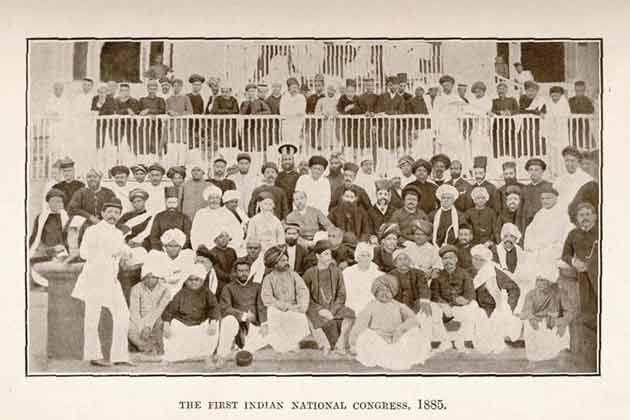
Who was the first President of the Indian National Congress?
a) Dadabhai Naoroji
b) Badruddin Tyabji
c) Womesh Chunder Bonnerjee
d) George Yule
Answer: c) Womesh Chunder Bonnerjee
In which city was the first session of the Indian National Congress held in 1885?
a) Calcutta
b) Bombay
c) Madras
d) Allahabad
Answer: b) Bombay
Who presided over the second session of the Indian National Congress in 1886?
a) Womesh Chunder Bonnerjee
b) Dadabhai Naoroji
c) Pherozeshah Mehta
d) Badruddin Tyabji
Answer: b) Dadabhai Naoroji
Who was the first Muslim President of the Indian National Congress?
a) Maulana Abul Kalam Azad
b) Syed Ahmed Khan
c) Badruddin Tyabji
d) Mohammad Ali Jinnah
Answer: c) Badruddin Tyabji
Which British national became the President of the Indian National Congress in 1888?
a) George Yule
b) William Wedderburn
c) Henry Cotton
d) A. O. Hume
Answer: a) George Yule
In which session of the Indian National Congress was the demand for Swaraj (self-rule) first officially raised?
a) 1885 Bombay Session
b) 1906 Calcutta Session
c) 1916 Lucknow Session
d) 1917 Calcutta Session
Answer: b) 1906 Calcutta Session
Who presided over the Indian National Congress session in 1905, which saw the beginning of the Swadeshi Movement?
a) Gopal Krishna Gokhale
b) Bal Gangadhar Tilak
c) Surendranath Banerjee
d) Lala Lajpat Rai
Answer: a) Gopal Krishna Gokhale
The 1916 Lucknow Session of the Indian National Congress is significant for which of the following reasons?
a) Formation of the Congress Socialist Party
b) Merger of the Extremists and Moderates in Congress
c) Signing of the Lucknow Pact with the Muslim League
d) Demand for complete independence
Answer: c) Signing of the Lucknow Pact with the Muslim League
Who was the President of the Indian National Congress during the Surat Split in 1907?
a) Dadabhai Naoroji
b) Rash Behari Bose
c) Rash Behari Ghosh
d) Annie Besant
Answer: c) Rash Behari Ghosh
In which year did Annie Besant become the President of the Indian National Congress?
a) 1916
b) 1917
c) 1918
d) 1919
Answer: b) 1917
